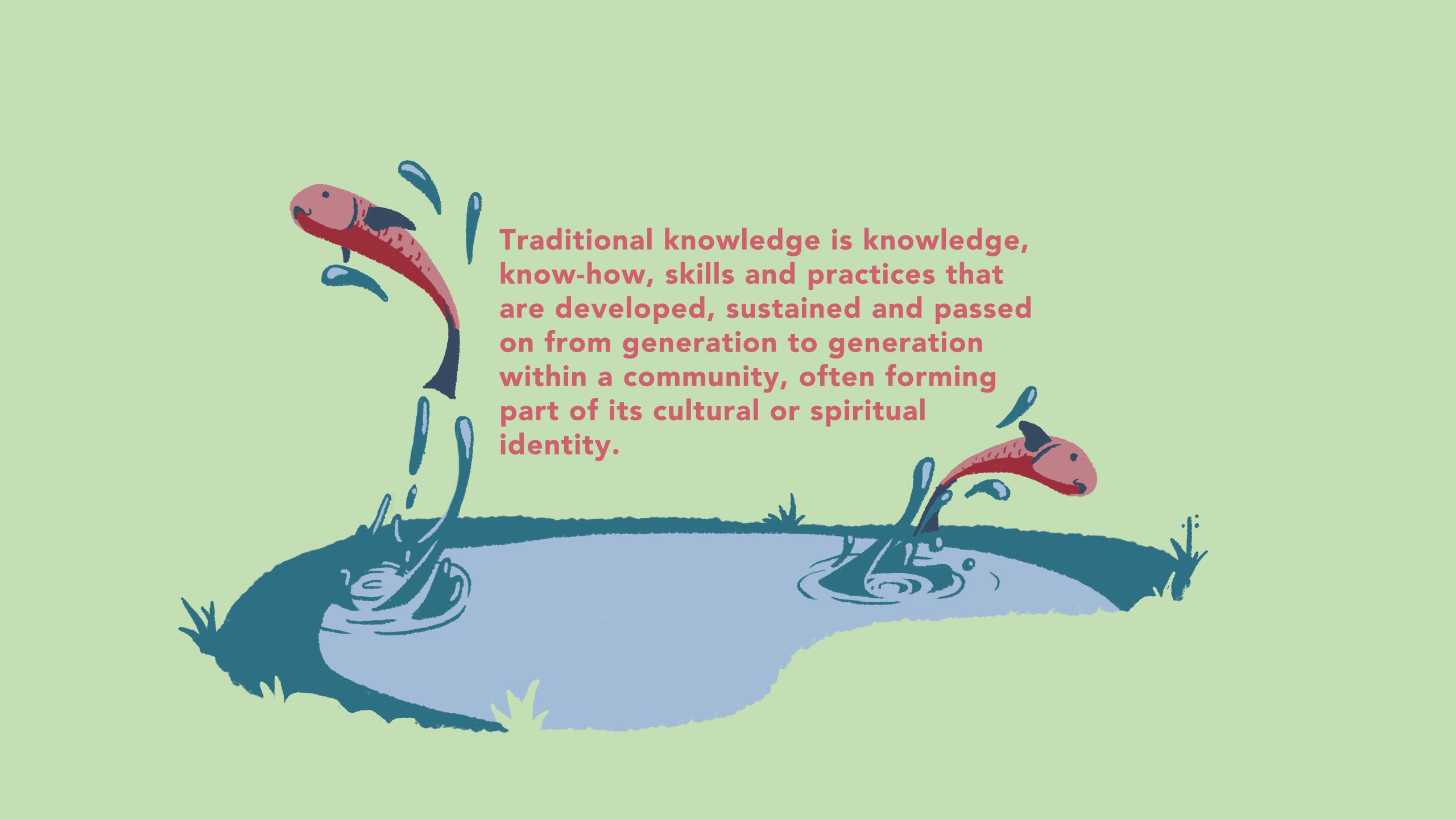
As attention turns to solutions for climate change, SBS Dateline meets Finland's climate warriors.
Watch the episode here.
In 2020, the world faces a monumental reckoning.
COVID19 has upended life as we know it, pressing pause on business as usual.
Earth is warming dangerously.
Climate change, the great existential challenge of our time, is becoming visible all around us; redistributing species, rapidly warming the Arctic, acidifying oceans and fundamentally altering ecosystems, both on land and at sea.
What happens next, the path forward, is up to us, yet it's unsteady and unclear.
For a more immersive experience, put on your headphones and listen to climate scientist Dr Tero Mustonen throughout this story
But in a small fishing community in Finland, there are glimpses of a new beginning. And there is hope.
A local fisherman turned climate scientist is discovering new solutions to our most difficult environmental challenges by looking to the past.
Dr Tero Mustonen is part of a growing movement of researchers around the globe, reimagining Western science to embrace Traditional Ecological Knowledge (TEK).
A mix of Indigenous knowledge and traditional wisdom, this knowledge is held by local communities and informed by the wider natural processes in which humans have participated for hundreds of thousands of years.
It's knowledge that has helped us adapt and survive for millennia, and hopefully, also beyond.


”


Finland is known as the land of a thousand lakes, but it’s actually covered by over 180,000 lakes, rivers and wetlands. And in the town of Selkie, water is at the heart of life.
In Selkie, there are families and individuals today who are part of an unbroken line of continued forest and fishing culture. The way they talk and think and co-exist with the land, is such that they are united.
Many in Selkie's community maintain traditions and stories that can be traced back centuries, which Tero Mustonen believes hold crucial clues to understanding and addressing the impacts of climate change.



Over the past few decades, Dr Tero Mustonen has been recording the local traditional knowledge of Selkie’s fishing elders, like Einari.
Einari has been fishing this lake since the 1950s and his memories reveal significant changes to the natural habitat here.
“We are, all around the world, in the villages and rural areas, communities and so on, waking up to the understanding that so much has been lost. So much of our natural eco systems, species and now even the weather has become different," explains Dr Tero Mustonen, who is also an author for the International Panel for Climate Change (IPCC).
"Then we are faced with pretty profound questions: how do we navigate and come to a better place?"
"By collecting traditional knowledge observations both on marsh-mires, lakes, rivers and forests, we could come to a new place to understand what has changed, and what is then important to be preserved."
"Only by listening carefully and in a nuanced complex way, can we understand what happened."

Dr Tero Mustonen is pioneering the blending of Traditional Ecological Knowledge and mainstream science as the director of an organisation called Snowchange Cooperative.
For more than ten years, Showchange has been addressing the accelerating loss of biodiversity in Finland, quietly carrying out one of the world's largest and most successful landscape re-wilding projects.
Across millions of hectares of marsh-mires and wetlands that have been destroyed by peat mining (Tero calls them "moonscapes"), Snowchange is beginning to see the return of nature and biodiversity.
It's an inspiring feat and one that will also help rebuild some of the world’s largest natural carbon sink in the process, going a long way to helping reduce Finland's carbon emissions.
“There are millions of hectares of damaged wetlands and marsh mires in Finland. At the beginning of the work - we have to do some of the human actions or interventions, like creation of wetland, but then very quickly after that, when we are done, we let the sites be. And nature has the power speed and possibility to come back. “
But rebuilding entire landscapes and ecosystems isn't easy. Especially when human activity has ensured many of their most basic building blocks have been lost or destroyed long ago.
This is why Tero's being led by traditional and Indigenous knowledge of the land, not just science alone.
It's considered at every stage in the re-wilding process, alongside the very best scientific understandings. Often helping to fill crucial gaps in official data on water quality or fish stocks.
“Traditional knowledge and oral histories in restoration work can give us baselines," explains Tero.
"We have worked with one lady who was 100 years old when we interviewed her and she was able to convey water quality information from 1970s back to 1921."
"It is also trying to position the speed of change and things that have happened into a context. And we don't really have any other context. It's not very helpful to say we have scientific measurements of this lake from 1974 or 1992. That's only a small window on a lake that could have been there 10,000 years."

An aerial view showing new growth at Linnunsuo, one of Snowchange Cooperative's main rewilding sites. Traditional knowledge is helping bring sites like these back to life.
An aerial view showing new growth at Linnunsuo, one of Snowchange Cooperative's main rewilding sites. Traditional knowledge is helping bring sites like these back to life.
Traditional Knowledge has today become a highly valued source of information for archaeologists, ecologists, biologists, ethnobotanists, climatologists and others.
But perhaps its most profound application lies in this kind of ecological restoration.
In his own research, Dr Tero Mustonen has found many examples far beyond the forests of Selkie which demonstrate the success of Indigenous wisdom and traditional knowledge, alongside modern science, in helping protect and restore biodiversity.
In Northeastern Australia, Tero found the East Trinity Wetland, once an acidic sugarcane plantation, has been nurtured back to life by the Indigenous Land and Sea Country Rangers of Djunbunti, who worked with government biologists and ecologists to address the acidity.
While in Tasmania, where warming waters and an explosion of spiny sea urchins has decimated 95% of the giant kelp forests, local Aboriginal communities are working with scientists to guide culturing, out-planting and monitoring for large-scale kelp forest restoration.
When combined with the latest scientific advances in ecological understanding and restoration like this, Tero believes this knowledge can offer a new way forward.
These are ‘‘bright spots’’, he concludes, "laying the foundations for a new global roadmap on how to respond to climate change and ensure the restoration of lost lands and their survival."
But these successes are still all too often overlooked by Western science and there is a long way to go before it views traditional and Indigenous knowledge as equally valid.
Science is still largely favoured as objective, something quantifiable, more trustworthy, while traditional knowledge is all too often dismissed as anecdotal, imprecise or unreliable.
Unless this can change, and our understanding widened, Tero fears traditional knowledge will be lost. Taking its widely demonstrated value and all its wealth of possibility with it.



Traditional Ecological Knowledge holds not just facts about the natural world, but different ways of being and perceiving that Tero believes only now is environmental science beginning to grasp.
In his re-wilding and restoration work, it has ultimately allowed what he calls a deep, multi-sensory re-engagement with nature and Selkie's landscapes.
A unique, hyper-aware consciousness of the interconnectedness of all things in the natural world. A universal magic that will be necessary to understand if we are to truly reverse the impacts of climate change.
"Slowly it's like an unveiling - this landscape becomes alive," he says.
"Only if you have that and come to that understanding of how wide and incredibly deep the human attachment to a landscape can be, then everything is pretty much different in your mind. And then it's very hard to take a quick fix, or a quick solution because you understand how complex and beautiful the natural system is."
This kind of enhanced mindfulness is common to all Indigenous and traditional communities around the world. And it's a view that could ultimately have profound consequences for the future of environmental science and the human race.
"Science especially natural sciences are all about facts and describing the world - how that tree might be, the colour of the leaves, how old it seems to be and so on. But it doesn't really give us the answers to the more important questions why are we here, why humans exist and what constitutes good relations with nature."
"Traditional knowledge, if it's truly based on nature and contains these morals and ethics, can guide us to make better judgements," says Tero.
"First and foremost we need wisdom."


Words by Calliste Weitenberg
Illustrations by Jonathan Delbridge
Video and audio by Ville Asikainen and Johanna Kokkola
www.sbs.com.au/dateline

